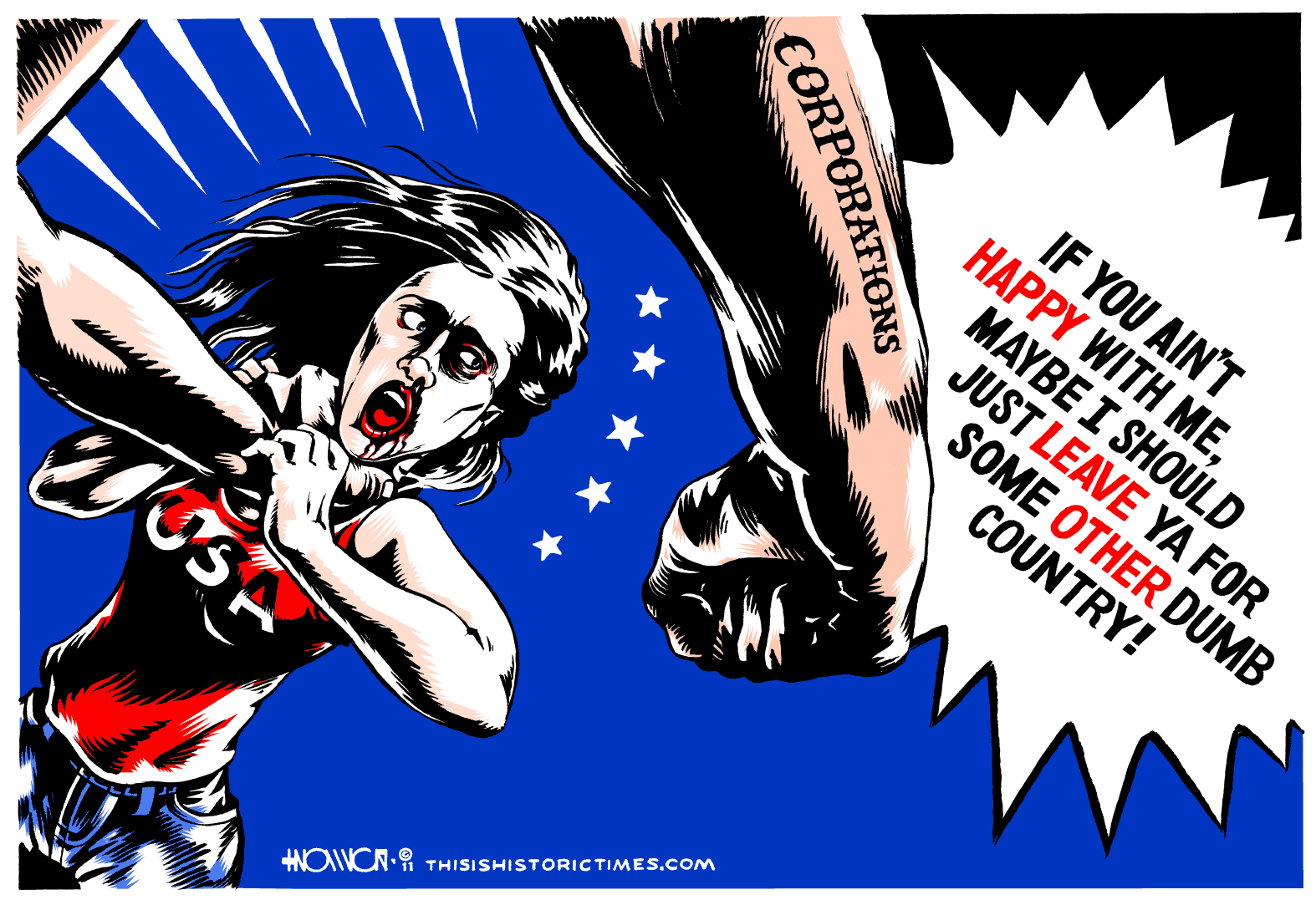The Invisible Hand

The last time I considered using this kind of imagery was when I was developing this cartoon. In that case, I felt it would trivialize the subject of domestic violence if I tried to make an association between it and petty politics, so I ended up going for something a little more tame. This time, I felt the metaphor was more appropriate, so I went ahead with it, even though it’s sure to make some folks very uncomfortable.
One of the things at issue in Wisconsin, other states, and the nation in general right now is the lowering of corporate tax rates (to the detriment of non-wealthy individuals), and the relaxation of laws and regulations intended to protect people from corporate negligence. As Edward Norton’s character in Fight Club once explained, it’s often more cost effective for companies to just pay off the victims of dangerous product failures than it is for them to self-regulate.
Free-market types like to argue that taxes and regulations discourage businesses from setting up shop domestically, and that if we don’t loosen things up, then they’ll just go someplace that doesn’t have such encumbrances. My feeling is that it’s probably not worth having them around if, in exchange for the jobs they provide and capital they bring in, we have to give them unlimited leeway to harm their customers, their workforce, and the environment.
I tried to emulate the aggressive, high-contrast style of Aidan Hughes, here. He’s the illustrator who also goes by the name “Brute!” and is probably best known for the many album covers he’s produced since the late ’80s for the industrial outfit KMFDM.


5 Responses to “The Invisible Hand”
Considering what corporations do to people’s lives, if anything, this is understated.
I think you really got it with this one, Terrence. The metaphor is ugly, but really fitting. Also, I just noticed the title… really brilliant
Seconding what FRM said.
One of the ironies is that GM, Ford, et al each produced vehicles that couldn’t be sold in many countries, while foreign manufacturers produced vehicles that could be sold virtually world wide. If the US regulated emissions more tightly, the auto industry would have been forced into creating cars that would have had near-universal marketability, just like Toyota or Honda do.
The first rule to a free market: You need to be willing to appeal to a wide market.
USA has great tits.
Leave a Response